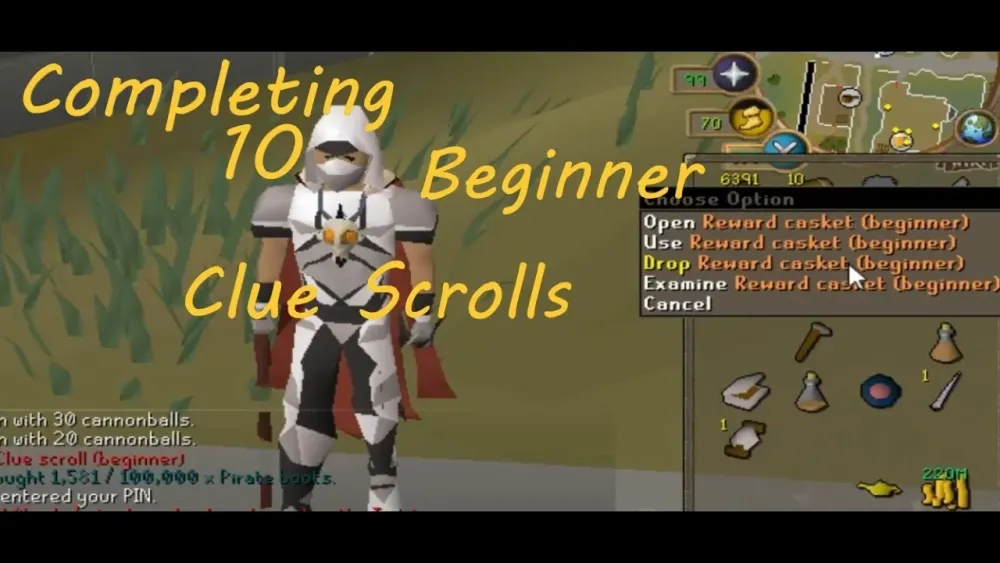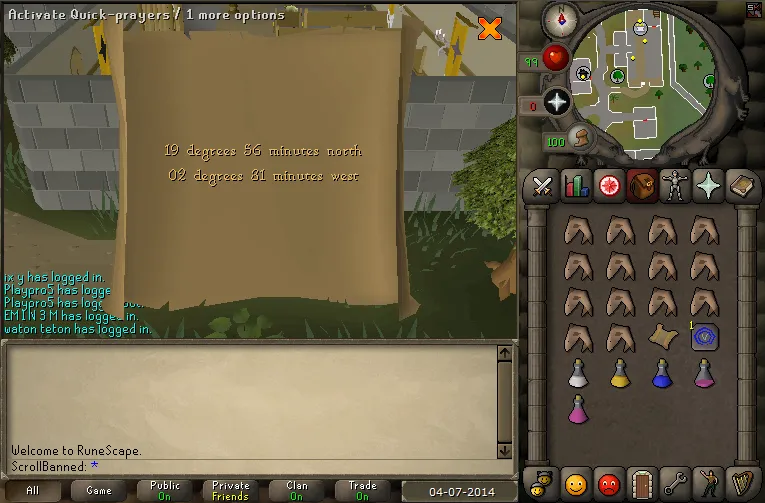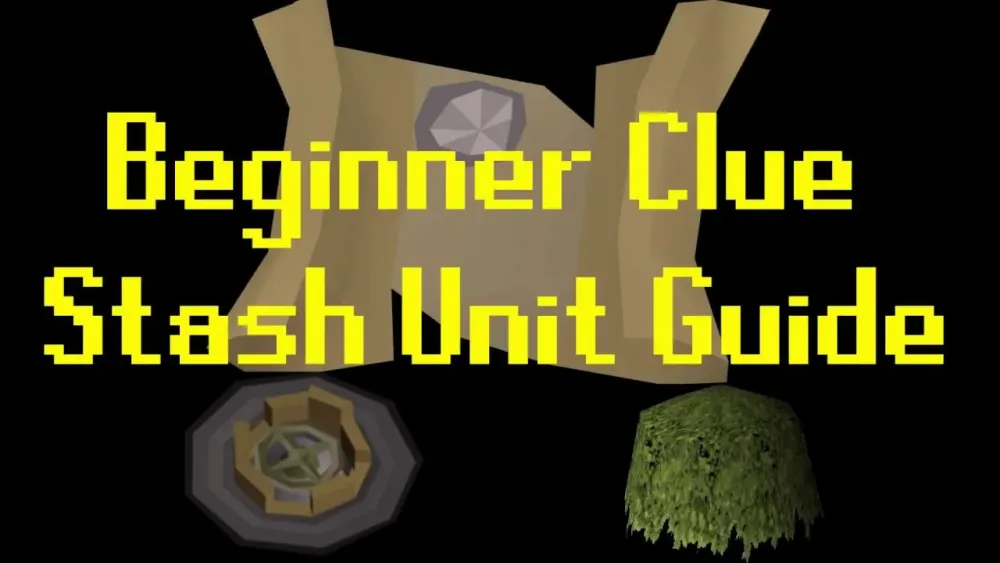Your cart is empty
OSRS Beginner Clue Scroll Guide for New Players

Welcome to the ultimate guide for tackling Beginner Clue Scrolls in Old School RuneScape (OSRS)! Whether you’re a free-to-play (F2P) player or just starting your adventure in Gielinor, beginner clue scrolls are a fun and accessible way to explore the world, earn rewards, and learn game mechanics. This guide covers everything you need to know, from obtaining scrolls to completing clues efficiently, with tips to maximize your experience.
Beginner clue scrolls are the easiest tier of Treasure Trails in OSRS, designed for new players. They involve a series of 1-3 steps, leading to a reward casket containing free-to-play items. These scrolls are the only clue type available to F2P players, making them perfect for those starting out or playing without a membership.
Why Should You Do Beginner Clue Scrolls?
- Learn the Game: Clues take you across Gielinor, helping you discover new locations and NPCs.
- Easy Rewards: Rewards include F2P items like mithril or adamant gear, which are great for early-game progression.
- Fun and Variety: They break the grind of skilling or combat with treasure-hunting adventures.
- Unlock the Explore Emote: Completing 600 beginner clues unlocks the “Explore” emote, a long-term goal for dedicated players.
How to Obtain Beginner Clue Scrolls

Getting your hands on a beginner clue scroll is straightforward. They drop from various low-level monsters and certain skilling activities. Here’s how you can acquire them efficiently.
Monster Drops
Low-level monsters are the primary source of beginner clue scrolls. Focus on those with high drop rates and low combat requirements. Here’s a table of the best monsters to farm:
| Monster | Location | Drop Rate | Combat Level |
|---|---|---|---|
| Minotaurs | Stronghold of Security | 1/60 | 12 |
| Goblins | Lumbridge, Edgeville | 1/64 | 2-5 |
| Bryophyta/Obor | Varrock Sewers/Edgeville Dungeon | Guaranteed | 128/106 |
Tip: Use the Skull Sceptre to teleport to the Stronghold of Security for quick access to minotaurs. Minotaurs also drop right skull halves to recharge the sceptre.
Skilling Activities
If combat isn’t your style, you can obtain clue scrolls while skilling. These come in special containers that you open to reveal the scroll:
- Fishing (Clue Bottle): Catch fish anywhere, with a chance to receive a clue bottle.
- Mining (Clue Geode): Mine rocks for a chance at a clue geode, especially effective at Crashed Stars.
- Woodcutting (Clue Nest): Chop trees to occasionally receive a clue nest.
Pro Tip: Use the “drop trick” to collect multiple scrolls while skilling. Drop a scroll on the ground to allow another to spawn, resetting the 61-minute despawn timer by picking it up and re-dropping it. The RuneLite plugin “Ground Items” can help track timers.
Implings (Members Only)
For members, catching baby or young implings is a fast but costly method. You can buy impling jars from the Grand Exchange:
- Baby Implings: 1/50 chance for a clue scroll.
- Young Implings: 1/25 chance for a clue scroll.
This method is expensive (costing millions in jars), so it’s best for players with spare gold or those hunting other impling loot.
Types of Beginner Clue Steps

Beginner clue scrolls feature a variety of clue types, each requiring different actions. Understanding these will help you complete clues quickly.
Anagram Clues
Anagrams are scrambled NPC names. Solve the anagram, talk to the NPC, and you’ll often receive the next clue or a simple task. For example, “orchestra” rearranges to “carthorse,” pointing to an NPC.
Example: Talk to the NPC, and they might ask you to answer a question or perform a task.
Charlie the Tramp Tasks
Charlie the Tramp, located in Varrock, often appears in beginner clues. He’ll ask for specific items, which he keeps upon delivery. Common items include:
- Iron ore
- Raw herring
- Leather body or chaps
Tip: Stock these items in your bank or buy them from the Grand Exchange to save time. No skilling is required, as noted items are accepted.
Cryptic Clues
Cryptic clues are riddles directing you to interact with NPCs, search objects, or visit specific locations. For example, a clue might say, “Talk to a man with a hat dropped by goblins,” pointing to Reldo in Varrock Palace.
Emote Clues
Emote clues require you to equip specific items, perform an emote at a designated location, and talk to Uri for the next clue. Examples include:
- “Cheer at Iffie Nitter. Equip a chef hat and a red cape.” (Varrock clothing store)
- “Clap at Bob’s Brilliant Axes. Equip a bronze axe and leather boots.” (Lumbridge)
Tip: Keep a clue-hunting loadout with common emote items like a bronze axe, leather boots, and gold jewelry to avoid trips to the bank.
Hot/Cold Clues
Hot/cold clues use a Strange Device (obtained from Reldo in Varrock Palace) to guide you to a dig spot. The device indicates if you’re “hot” (close) or “cold” (far) via the chatbox. Common locations include Al Kharid or Draynor.
Tip: Teleport to Al Kharid or Draynor using an Amulet of Glory to check hot/cold spots quickly.
Tips for Completing Beginner Clue Scrolls Efficiently
Maximize your scrolls per hour with these strategies:
Prepare a Clue Loadout
Keep these items in your bank or inventory for quick access:
- Teleportation Items: Amulet of Glory, Varrock Teleport runes, Lumbridge Home Teleport.
- Emote Gear: Bronze axe, leather boots, gold ring, gold necklace, chef’s hat, red cape.
- Charlie Items: Iron ore, raw herring, leather body/chaps.
- Tools: Spade (for digging), Strange Device (for hot/cold clues).
Use Hidey-Holes
With 12 Construction, build hidey-holes to store emote clue items at key locations (e.g., Varrock, Lumbridge). This saves inventory space and reduces banking time.
Leverage RuneLite Plugins
RuneLite enhances clue-solving with plugins like “Clue Scroll” (auto-solves anagrams and riddles) and “Ground Items” (tracks dropped scroll timers). These are Jagex-approved and make clue hunting smoother.
Avoid Common Pitfalls
Watch out for these mistakes:
- Despawning Scrolls: Dropped scrolls despawn in 61 minutes. Use the drop trick carefully and track timers.
- Inventory Limits: You can only hold one clue scroll at a time unless using the drop trick.
- Incomplete Steps: For emote clues, finish Uri’s dialogue to avoid repeating steps.
Rewards and Long-Term Goals
Beginner clue scrolls offer modest but useful rewards for new players. Common rewards include:
- Armor: Mithril or adamant items (e.g., kiteshields, platebodies).
- Weapons: Black or mithril weapons.
- Cosmetics: Frog boots, mole slippers, jester cape.
- Cash: Small amounts of gold pieces.
Rewards are typically worth 10k-50k GP, with rare items like mole slippers fetching up to 500k. For long-term players, completing 600 beginner clues unlocks the Explore emote, a prestigious achievement.
Is It Worth It?
For beginners, clue scrolls are more about fun and exploration than profit. They yield low GP per hour compared to bossing or skilling, but the treasure-hunting experience and early-game gear make them worthwhile. If you enjoy puzzles and want to break up the grind, beginner clues are a great choice.
Final Thoughts: Beginner clue scrolls are an excellent way to dive into OSRS’s Treasure Trails. They’re accessible, teach you about Gielinor, and offer decent rewards for new players. Start by farming goblins or minotaurs, prepare a clue loadout, and use RuneLite to streamline the process. Happy hunting, and may your caskets be filled with riches!

